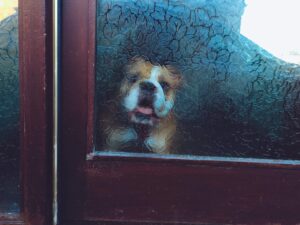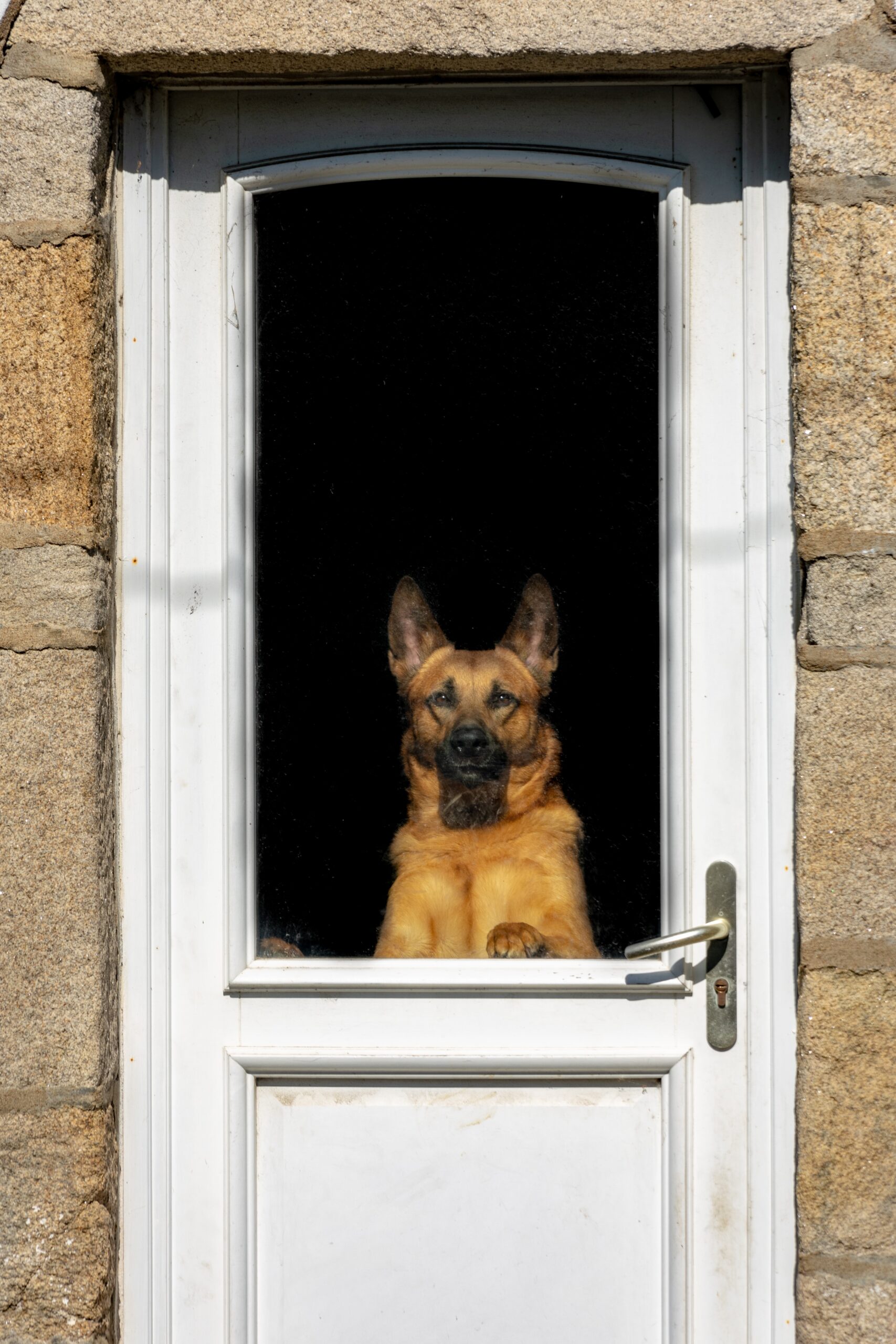As a dog owner, you’ve probably experienced the bittersweet moment of watching your furry friend press their paws against the door, yearning to explore the great outdoors. The desire to escape from the house might leave you puzzled and concerned.
Rest assured, there are numerous reasons why your dog might want to venture beyond the walls of your home. As you read on we’ll delve into some of the common motivations behind this behaviour and explore ways to address it.
1. Natural Curiosity and Exploration
Dogs are naturally curious creatures. Just like a child eager to explore a new playground, dogs are drawn to the intriguing scents, sights, and sounds beyond the confines of your home. Their sense of smell is particularly acute, allowing them to detect the presence of other animals and even trace the path of a squirrel that recently passed through the yard.
2. Boredom and Lack of Stimulation
A bored dog can quickly become a restless one. If your dog spends prolonged periods indoors without sufficient mental and physical stimulation, it might develop a strong desire to escape as a means of seeking entertainment. This behaviour is often a result of pent-up energy and the need for novel experiences.

3. Separation Anxiety
Separation anxiety is a common issue among dogs and can trigger a range of behaviours, including attempts to escape. Dogs with separation anxiety may feel distressed when left alone, leading them to try to escape in search of their owner or comfort. This behaviour can be particularly intense if the dog associates the outdoors with the presence of their owner.
4. Socialisation and Interaction
Dogs are social animals that thrive on interaction with both humans and other dogs. If your dog feels isolated or lacks opportunities to interact with companions, it might try to escape to find socialisation opportunities or to join in on the excitement happening outside.
5. Fear or Avoidance
Unfamiliar noises, construction, or even an intimidating passerby can trigger fear in dogs. In an attempt to avoid perceived threats, dogs might attempt to escape from the house to find safety. This behaviour is their way of seeking a place where they feel more secure.
6. Hormones and Reproductive Instincts
Intact male and female dogs that have not been spayed or neutered might have a strong urge to escape due to their reproductive instincts. They might be drawn to the scent of other dogs and seek opportunities to mate, especially during breeding seasons.
Addressing the Behaviour: Tips and Solutions
- Provide Adequate Stimulation: Engage your dog’s mind and body through regular play, training sessions, and puzzle toys. A tired dog is less likely to feel the urge to escape due to boredom.
- Socialisation Opportunities: Arrange playdates with other dogs, visit dog parks, or enrol in training classes to provide your dog with positive social experiences.
- Create a Safe Space: Designate a comfortable and secure space within your home where your dog can retreat when they’re feeling overwhelmed or anxious.
- Positive Associations: Make coming back inside an enjoyable experience. Offer treats, praise, or a special toy to reward your dog for willingly returning indoors.
- Training and Commands: Teaching your dog basic commands like “stay” and “come” can help prevent them from bolting out of open doors.
- Consult a Professional: If your dog’s desire to escape is becoming a persistent issue, consider seeking advice from a professional dog trainer or behaviourist to address the underlying causes.
Conclusion
The desire of dogs to escape from the house can stem from a variety of reasons, ranging from curiosity and boredom to anxiety and socialisation needs. As a responsible dog owner, it’s essential to understand the motivations behind this behaviour and take steps to address them appropriately.
By providing your furry friend with mental and physical stimulation, a safe and comfortable environment, and opportunities for socialization, you can help curb their urge to escape and foster a harmonious relationship between them and their home.

